-
Nuffield Council on Bioethics Working Party on Cosmetic Procedures
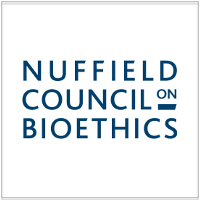 I am a member of the Nuffield Council on Bioethics Working Party on Cosmetic Procedures. You can find more about the project, including the other members, here.
I am a member of the Nuffield Council on Bioethics Working Party on Cosmetic Procedures. You can find more about the project, including the other members, here.Invasive cosmetic procedures are becoming increasingly popular and accessible in the UK, prompting questions about potential risks to users and the lack of regulation and professional standards in this area.
This project will explore ethical issues in cosmetic procedures with a particular focus on the role and responsibilities of health and scientific professionals and others in responding to demand for invasive non-reconstructive procedures that aim to enhance or normalise appearance.
-
The Limitations of Contract: Regulating Personal Relationships in the Marriage-Free State
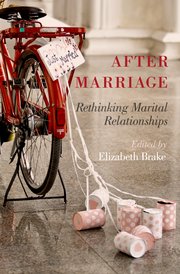 Many theorists defend relationship contracts. Some argue that enforceable relationship contracts should be available alongside existing or reformed state-recognised marriage, and available to either married or unmarried couples. Other theorists argue that relationship contracts are the best sort of legal regulation to replace marriage. It is this latter question that is the subject of this chapter. The chapter contrasts contract and directive models of regulation, and notes that contract appears more compatible with liberty than does directive. However this appearance is illusory since contracts can undermine liberty, directives can enhance liberty, and even a contract regime requires default directives. Moreover, there are various problems with the enforcement of relationship contracts. Specific performance is rarely appropriate in the relationship context. The alternative, fault-based compensatory alimony, risks causing injustice to vulnerable parties such as those who take on caring responsibilities (usually women) and children. Relational contract theory attempts to deal with some of these problems but has its own limitations. The chapter concludes that contract is not the best replacement for marriage.
Many theorists defend relationship contracts. Some argue that enforceable relationship contracts should be available alongside existing or reformed state-recognised marriage, and available to either married or unmarried couples. Other theorists argue that relationship contracts are the best sort of legal regulation to replace marriage. It is this latter question that is the subject of this chapter. The chapter contrasts contract and directive models of regulation, and notes that contract appears more compatible with liberty than does directive. However this appearance is illusory since contracts can undermine liberty, directives can enhance liberty, and even a contract regime requires default directives. Moreover, there are various problems with the enforcement of relationship contracts. Specific performance is rarely appropriate in the relationship context. The alternative, fault-based compensatory alimony, risks causing injustice to vulnerable parties such as those who take on caring responsibilities (usually women) and children. Relational contract theory attempts to deal with some of these problems but has its own limitations. The chapter concludes that contract is not the best replacement for marriage.Reviewers’ comments:
The book is “strenuously avant-garde”. The New York Times (5th April 2016).
Chambers’ chapter is “sobering and refreshing”. Notre Dame Philosophical Reviews (2nd May 2016).
Chambers, “one of the best-known advocates” of the claim that marriage should not be recognised by the state, contributes a “nuanced and lucid” chapter that is “among the most interesting contributions in the volume.” Hypatia (2017)
You can read more about the book here.
-
Feminism and Liberalism
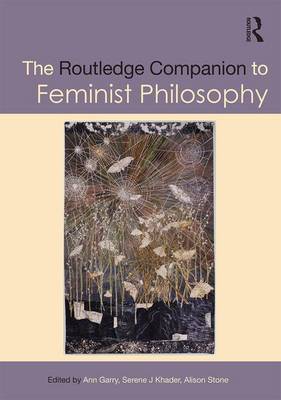 In Routledge Companion to Feminist Philosophy, edited by Serene Khader, Ann Gary, and Alison Stone (Routledge, 2017).
In Routledge Companion to Feminist Philosophy, edited by Serene Khader, Ann Gary, and Alison Stone (Routledge, 2017).For some feminists liberalism is little more than patriarchy in disguise; for others, it is the framework for securing justice. Feminism, like all other positions in political philosophy, is a range of views rather than a single determinate viewpoint. One aspect of this range is that feminism includes both academics and activists, for whom the term ‘liberalism’ can signify rather different things; after all, liberalism is not one single thing either.
In this chapter I start by considering feminist criticisms of liberalism. I discuss two aspects of feminist critique: first, academic feminist critiques of non-feminist liberal philosophy; second, activist feminist critiques of what is variously called “choice feminism”, “third-wave feminism”, or simply “liberal feminism”.
I then move to those feminists who endorse liberalism and argue that a suitably modified liberalism offers the best path to gender equality. This position, “feminist liberalism,” is mostly found in contemporary Anglo-American political philosophy. Feminist liberals understand liberalism as a commitment to substantive, demanding principles of justice based on freedom and equality. Included in this section are those feminist approaches that combine radical feminism’s insights about the limitations of individual choice with feminist liberalism’s commitment to autonomy, equality, and justice.
See more about the book here.
-
Judith Butler’s Gender Trouble
In The Oxford Handbook of Classics in Contemporary Political Theory, edited by Jacob T. Levy (OUP, forthcoming).
This chapter provides a critical introduction to Judith Butler’s classic work Gender Trouble, including an analysis of the impact it has made on political theory.
The chapter is online first and you can read it here.
-
Not the Fun Kind – Conference on Andrea Dworkin
-
Becoming Oneself – The Problem of Gendered Complicity
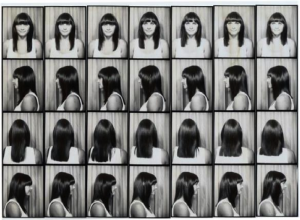 I responded to a paper by Nancy Bauer at this conference in Birkbeck in June 2015, organised by Prof Susan James. Details here.
I responded to a paper by Nancy Bauer at this conference in Birkbeck in June 2015, organised by Prof Susan James. Details here. -
BBC Radio 4 Broadcasting House
 I took part in a “remunerations panel”, discussing the philosophy behind how much people should be paid. The item was broadcast live on 7th June 2015. You can listen here – the item starts 14 minutes in.
I took part in a “remunerations panel”, discussing the philosophy behind how much people should be paid. The item was broadcast live on 7th June 2015. You can listen here – the item starts 14 minutes in. -
Gender in the History of Early Modern Political Thought
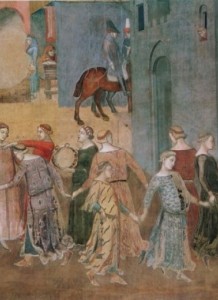 I was delighted to be a representative of contemporary political philosophy, talking about Feminism in Philosophy, in this year’s Balzan-Skinner conference in the History of Political Thought. Find details here. The conference is on 22 May 2015.
I was delighted to be a representative of contemporary political philosophy, talking about Feminism in Philosophy, in this year’s Balzan-Skinner conference in the History of Political Thought. Find details here. The conference is on 22 May 2015. -
David Miller Conference
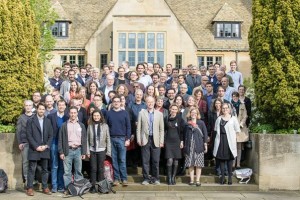 I was neither an organiser or paper-giver at this conference for David Miller in May 2015, but I was honoured and delighted to give a toast to David, who supervised my DPhil with Lois McNay. Thanks to Chris Bertram for the photo, and to Dan Butt, Sarah Fine and Zofia Stemplowska for organising the conference.
I was neither an organiser or paper-giver at this conference for David Miller in May 2015, but I was honoured and delighted to give a toast to David, who supervised my DPhil with Lois McNay. Thanks to Chris Bertram for the photo, and to Dan Butt, Sarah Fine and Zofia Stemplowska for organising the conference. -
Political Theory and Impact Roundtable
 I was part of a roundtable on Political Theory and Impact in March 2015, run by the PSA and held at the House of Lords. The participants were:
I was part of a roundtable on Political Theory and Impact in March 2015, run by the PSA and held at the House of Lords. The participants were:Lord Parekh FBA (chair)
Prof Thom Brooks (Law, Durham)
Dr Clare Chambers (Philosophy, Cambridge)
Prof Elizabeth Frazer (Politics, Oxford)
Dr Emily McTernan (Political Science, UCL)Dr Martin O’Neill (Politics, York)
Prof Michael Otsuka (Philosophy, LSE)
Prof Albert Weale (Political Science, UCL)D
 etails are here.
etails are here. -
WOW festival

I spoke at the WOW – Women of the World – Festival in Cambridge in March 2015, on a panel on Women’s Bodies, Private Places.
Women’s bodies, who do they belong to? A wide- ranging, multi-generational and diverse panel will explore issues around life as a woman. From boobs and body hair to body image and periods, how have attitudes changed and who decides what’s ‘right’? In conversation will be Dr Clare Chambers, author of ‘Fat is a Feminist Issue’ Susie Orbach, Roz Hardie, CEO of campaign group Object, Debra Bourne from All Walks Beyond the Catwalk, poet, singer, writer and actor Keisha Thompson, Alice Wroe from the Herstory project, trans woman Dr Rachael Padman and Becky Talbot from Dhiverse.
See the programme here.
-
Beauty Demands Workshop
 I’m speaking at the first of four workshops on Beauty Demands in Warwick this March. Find details of the workshop here.
I’m speaking at the first of four workshops on Beauty Demands in Warwick this March. Find details of the workshop here. -
Seminar in Contemporary Political Thought (LT 2015)
 The seminars will take place on Fridays between 1.00-2.30pm in the Coleridge Room, Jesus College. All are welcome.
The seminars will take place on Fridays between 1.00-2.30pm in the Coleridge Room, Jesus College. All are welcome.Convenors: Dr Clare Chambers (Philosophy) and Dr Duncan Bell (POLIS)
16th January: Hillel Steiner, University of Manchester
Levels of Non-Ideality30th January: Jeff McMahan, University of Oxford
Liability, Proportionality, and the Number of Aggressors13th February: Kimberlee Brownlee, University of Warwick
Social Contribution Injustice27th February: Andrea Sangiovanni, King’s College, London
Moral Equality, Respect, and Cruelty -
Seminar in Contemporary Political Thought (MT 2014)
 Faculty of Philosophy and POLIS
Faculty of Philosophy and POLISConvenors: Dr Clare Chambers (Philosophy) and Dr Duncan Bell (POLIS)
The seminars take place on alternate Fridays between 1.00-2.30pm in the Coleridge Room, Jesus College. All are welcome.
Michaelmas Term 2014
10th October (week 1)
Miriam Ronzoni, University of Manchester
“Republicanism and Global Politics: Three Requirements in Tension”24th October (week 3)
Elizabeth Frazer, University of Oxford
“Reading Shakespeare Politically”7th November (week 5)
Tracy Strong, UC San Diego
“Where Do We Find Ourselves? Hawthorne and the Actuality of Political Space”21st November (week 7)
Moya Lloyd, Loughborough University
“Naming Absence: The Politics of Body Counts” -
Seminar in Contemporary Political Thought (MT 2014)
Convenors: Dr Clare Chambers (Philosophy) and Dr Duncan Bell (POLIS)
The seminars take place on alternate Fridays between 1.00-2.30pm in the Coleridge Room, Jesus College. All are welcome.
Michaelmas Term 2014
10th October (week 1)
Miriam Ronzoni, University of Manchester
“Republicanism and Global Politics: Three Requirements in Tension”24th October (week 3)
Elizabeth Frazer, University of Oxford
“Reading Shakespeare Politically”7th November (week 5)
Tracy Strong, UC San Diego
“Where Do We Find Ourselves? Hawthorne and the Actuality of Political Space”21st November (week 7)
Moya Lloyd, Loughborough University
“Naming Absence: The Politics of Body Counts” -
3am magazine
 An interview with me, focusing on my work in Sex, Culture, and Justice. Read the interview here.
An interview with me, focusing on my work in Sex, Culture, and Justice. Read the interview here.Clare Chambers chews over the core philosophical issues of sex, culture and justice for liberal feminists, brooding on practices of physical modification, social construction’s role in negotiating claims of universalism and tolerance, Foucault and the panopticon, Bourdieu and habitus, Mackinnon’s critique of liberal feminism, taking violence against women seriously, Benhabib’s discourse ethics, how not to be a relativist, of what kind of universality is worth defending and of the state of academic philosophy and feminism. This is a voice from a war zone. Listen up!
-
Liberal Views
-
The Marriage-Free State
 Proceedings of The Aristotelian Society (2013). This paper sets out the case for abolishing state-recognised marriage and replacing it with piecemeal regulation of personal relationships. It starts by analysing feminist objections to traditional marriage, and argues that the various feminist critiques can best be reconciled and answered by the abolition of state-recognised marriage. The paper then considers the ideal form of state regulation of personal relationships. Contra other recent proposals equality and liberty are not best served by the creation of a new holistic status, such as civil union, or by leaving regulation to private contracts. Instead, the state should develop piecemeal regulations that apply universally. You can read the paper and listen to the podcast here or on the OUP Philosophy Festival Reading List here.
Proceedings of The Aristotelian Society (2013). This paper sets out the case for abolishing state-recognised marriage and replacing it with piecemeal regulation of personal relationships. It starts by analysing feminist objections to traditional marriage, and argues that the various feminist critiques can best be reconciled and answered by the abolition of state-recognised marriage. The paper then considers the ideal form of state regulation of personal relationships. Contra other recent proposals equality and liberty are not best served by the creation of a new holistic status, such as civil union, or by leaving regulation to private contracts. Instead, the state should develop piecemeal regulations that apply universally. You can read the paper and listen to the podcast here or on the OUP Philosophy Festival Reading List here. -
The Philosophers’ Magazine
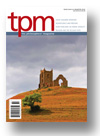
My piece “Liberal views” discusses different models of separation of church and state, as they are conceptualised philosophically and as they apply to actual polities. The article is here.
-
New Directions in Public Reason (2014)
I participated in this excellent event at the University of Birmingham. Details here.
-
Seminar in Contemporary Political Thought (LT 2014)
The seminars take place on Fridays between 1.00-2.30pm in the Coleridge Room, Jesus College. All are welcome.
17th January
Christian List, LSE: Theory Construction in Political Theory: A Philosophy-of-Science Perspective31st January
Sarah Fine, King’s College, London: Migration and Distributive Justice14th February
Moya Loyd, Loughborough University: Deaths That Matter: Critical Reflections on the Politics of Mourning and the Limits of Human Belonging28th February
Matt Kramer, University of Cambridge: Torture, Morality, and Law -
Aristotelian Society
 I presented my paper “The Marriage-Free State” to the Aristotelian Society on 7 January 2013. You can listen to the podcast of the presentation here.
I presented my paper “The Marriage-Free State” to the Aristotelian Society on 7 January 2013. You can listen to the podcast of the presentation here. -
Seminar in Contemporary Political Thought (MT 2013)
The seminars will take place on Fridays between 1.00-2.30pm in the Coleridge Room, Jesus College. All are welcome.
Convenors: Dr Clare Chambers (Philosophy) and Dr David Blunt (POLIS)11th October
Jules Holroyd, University of Nottingham: Moral and Institutional Desert25th October
Ben Colburn, University of Glasgow: Beneficence and Blackmail8th November
Alex Voorhoeve, LSE: How Should We Aggregate Competing Claims?22nd November
Catriona McKinnon, University of Reading: Crimes Against Humanity, and Future People -
Andrea Dworkin Commemorative Conference (2006)
The Andrea Dworkin Commemorative Conference was held at the Centre for the Study of Social Justice (CSSJ), University of Oxford, in 2006. You can hear the podcasts of the day here, with thanks to the CSSJ for allowing them to be posted.
Session 1:
Sheila Jeffreys, “Not just about pornography: the radical politics of Andrea Dworkin”Alison Assiter, “Pornography: its significance for feminism”Session 2:
Finn McKay, “Prostitution and Andrea Dworkin’s relevance to young feminists”Valerie Bryson, “Andrea Dworkin, feminist political thought, and the role of men”Session 3:
Michael Moorcock, “Andrea Dworkin’s fiction”
Julie Bindel, “Myths about Andrea Dworkin”
John Stoltenberg, “What Andrea knew about her work”Plenary session:
Professor Catharine A. MacKinnon, “Going Her Own Way”
-
BBC Radio 4 “Woman’s Hour”
I made a live appearance on BBC Radio 4’s Woman’s Hour, discussing ideas from Sex, Culture, and Justice in the context of a debate on cosmetic surgery and the concept of ‘normal’, on 31st July 2012. You can listen to the debate right here via the sound file below. The segment begins at 33m, I am on at 37m.
-
UK Feminista Thinkpiece
 Edited excerpt from Sex, Culture, and Justice published by UK Feminista as their first Thinkpiece on “Cosmetic Surgery, Culture, and Choice”. Find it here.
Edited excerpt from Sex, Culture, and Justice published by UK Feminista as their first Thinkpiece on “Cosmetic Surgery, Culture, and Choice”. Find it here. -
UK Feminista in The Guardian
-
Fabiana
 My work was cited in Fabiana, the magazine of the Fabian Society Women’s Network, issue 2 p. 7 (Winter 2012). Print and on-line, on-line available here.
My work was cited in Fabiana, the magazine of the Fabian Society Women’s Network, issue 2 p. 7 (Winter 2012). Print and on-line, on-line available here. -
www.opendemocracy.net
 My chapter on “Feminism” from the Oxford Handbook of Political Ideologies was cited in Rahila Gupta, “Has neoliberalism knocked feminism sideways?” 4th January 2012. Available here.
My chapter on “Feminism” from the Oxford Handbook of Political Ideologies was cited in Rahila Gupta, “Has neoliberalism knocked feminism sideways?” 4th January 2012. Available here. -
“Gender justice, society and the state”, IPPR
 I was a keynote speaker at this IPPR event, held on 1 December 2011. Audience members included MPs, ministers, think tanks, pressure groups, journalists. Details here.
I was a keynote speaker at this IPPR event, held on 1 December 2011. Audience members included MPs, ministers, think tanks, pressure groups, journalists. Details here.


